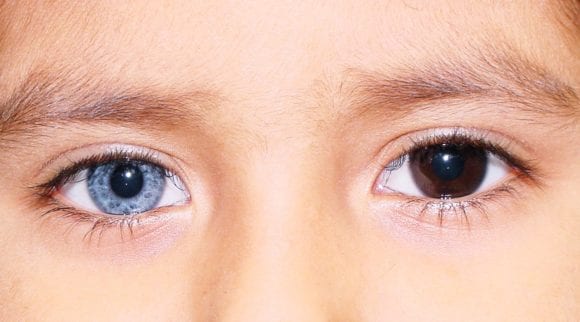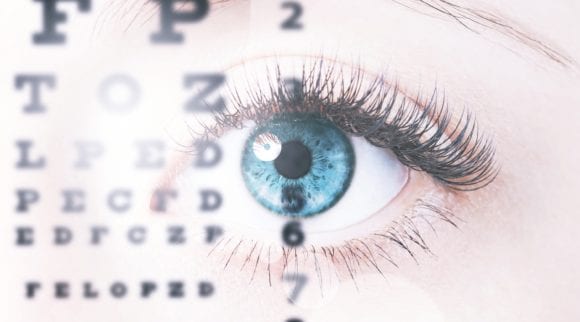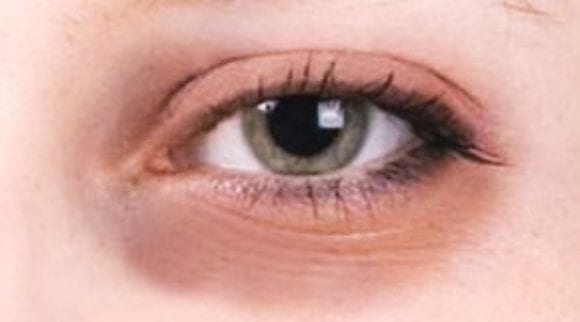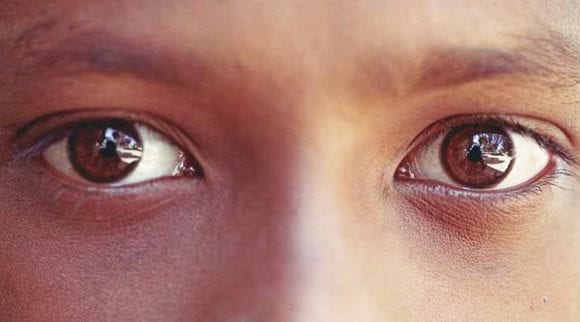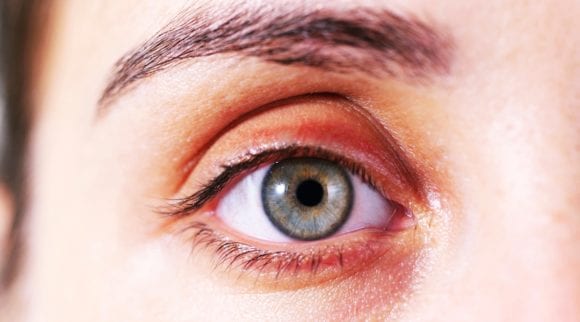Eye Herpes or Ocular Herpes - Signs, Symptoms, & Treatment

Ocular herpes, also known as eye herpes, can be as bad as it sounds. That means you should know the signs, symptoms, and best treatment methods. If you’re freaked out by the thought of herpes you should know that ocular or eye herpes is not usually the type of herpes associated with STDs.
Some warning signs or symptoms of ocular herpes include inflammation of the cornea, frequent eye infections, pain, sensitivity to light, blurry vision, and more.
Ocular or eye herpes is a virus with unique characteristics. It can lie dormant for years before displaying signs or symptoms. It can also be recurrent in many cases. Due to the fact that it can be recurrent, a permanent cure has yet to be discovered. The good news is there are many ocular herpes treatment options available.
Consulting a doctor is highly recommended if you are noticing signs or symptoms of ocular herpes. If you are battling frequent breakouts or eye infections you should invest some time into living a healthier lifestyle and boosting your immune system. We’ll cover some tips for boosting the immune system toward the end of this blog. Ocular herpes is known to be one of the leading causes of blindness in the world. Keep reading to learn a wealth of information about the signs, symptoms, and treatment for ocular herpes.

What Are The Warning Signs Or Symptoms Of Ocular Herpes?
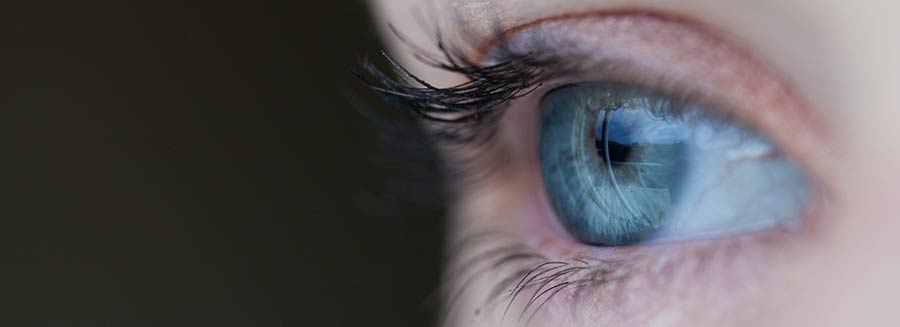 Ocular herpes can be a reoccurring condition that you may become all too familiar with. In the event of an outbreak you may have signs or symptoms that can help you diagnose eye herpes. However, the number of signs and symptoms that can be related to ocular herpes can also be related to many other eye conditions. This can often cause doctors or individuals to initially misdiagnose ocular herpes in the early stages. Commonly, only one eye will show symptoms or signs but it’s possible for both eyes to become affected.
Ocular herpes can be a reoccurring condition that you may become all too familiar with. In the event of an outbreak you may have signs or symptoms that can help you diagnose eye herpes. However, the number of signs and symptoms that can be related to ocular herpes can also be related to many other eye conditions. This can often cause doctors or individuals to initially misdiagnose ocular herpes in the early stages. Commonly, only one eye will show symptoms or signs but it’s possible for both eyes to become affected.
If you are not currently aware that you have the herpes virus you should still be on the lookout for signs and symptoms. If you notice someone has a cold sore or any other signs of herpes you should avoid direct contact. You should also frequently wash your hands and take regular preventative measures to reduce your exposure to viruses and bacteria. The herpes virus can lie dormant for years or an entire lifetime causing many of us to be unaware we have the virus. It’s a very sneaky and less than desirable virus so pay close attention to warning signs and symptoms of eye herpes.
Some warning signs and symptoms of ocular herpes are:
- Inflammation of the cornea (this can result in sudden and intense eye pain or irritation)
- Blurry vision (resulting from a cloudy cornea)
- Watering or tearing eyes
- Frequent eye infections
- Swelling of areas surrounding the eyes
- Irritation
- Foreign body sensations such as pain, redness, blurred vision, tearing, etc.
- Eye sores
- Light sensitivity
What’s Causing Your Ocular Herpes?
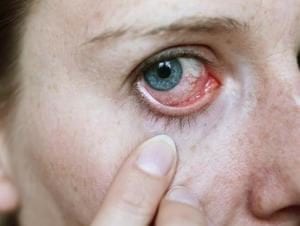 Unfortunately, the direct cause of an ocular herpes outbreak is unknown at this time. However, there’s a lot to learn that can help you better understand the condition. Ocular herpes is a recurrent viral infection that can affect the eyes. It’s a relatively common virus that can be caused by type 1 herpes simplex virus.
Unfortunately, the direct cause of an ocular herpes outbreak is unknown at this time. However, there’s a lot to learn that can help you better understand the condition. Ocular herpes is a recurrent viral infection that can affect the eyes. It’s a relatively common virus that can be caused by type 1 herpes simplex virus.
Typically, it initially enters the body through the mouth or nose. It can then travel into the nerves. In many cases someone can come in contact with the virus and it can lie dormant for years in the nerves. Sometimes it may not ever wake up or cause irritation.
Some possible causes of ocular or eye herpes are:
- Contact with an infected person during an outbreak
- Direct or self contact with an active herpes infection such as a cold sore
Who Can Get Ocular or Eye Herpes?
Surprisingly, herpes is one of the most common conditions infecting the world. Eye or ocular herpes is harder to get but many of us are at risk for developing it. From newborns to adults, herpes can affect just about all age groups.
How Can Ocular Herpes Be Diagnosed?
If you’re experiencing any kind of eye irritation you should probably consult with a doctor due to the sensitivity and importance of healthy eyes. If you’re in a situation that does not allow for doctor treatment keep researching while trying to properly diagnose and treat your eyes. This blog includes valuable information such as types, symptoms, treatments, and more for ocular or eye herpes.
Who Can Diagnose Ocular Herpes?
For proper diagnosis you should consult an optometrist or ophthalmologist. For recurring or more complex cases you should see a Corneal specialist. A Corneal specialist has undergone in depth training and education regarding diseases of the external eye and cornea.
What Can You Expect When Visiting a Doctor for Ocular Herpes Diagnosis?
 Ocular or eye herpes can be often misdiagnosed during early stages. Documenting your symptoms and when they occurred can help you receive a more accurate diagnosis. You should bring these notes to your doctor’s appointment and be prepared to answer questions about your medical history.
Ocular or eye herpes can be often misdiagnosed during early stages. Documenting your symptoms and when they occurred can help you receive a more accurate diagnosis. You should bring these notes to your doctor’s appointment and be prepared to answer questions about your medical history.
In most cases during your diagnosis appointment you can expect the following 3 things:
#1. Medical history questions
Most doctors will start the appointment by gathering information about your medical history and symptoms. You should be prepared to answer questions regarding:
- When your symptoms began
- What makes symptoms worse?
- Does anything make symptoms better?
- Do you have a history of cold sores?
#2. Eye examination
Your doctor should perform a physical examination of your eyes. They can use advanced microscopes such as a slit lamp to visualize the eye’s surface and, if necessary, the eyelid too. In cases involving eye sores, doctors can usually diagnose eye or ocular herpes by examining the sores. In cases where deeper layers of the eye are infected doctors may measure the eye pressure using special instruments.
#3. Testing
If you have a blistered area your doctor can take a small cell sample from it. The sample can then be sent to a lab and tested for herpes simplex virus. However, herpetic lesions usually have a distinct appearance and can be quite easy to diagnose without a culture.
Related: What to Expect When You Have a Corneal Transplant
How Can You Treat Ocular Herpes?
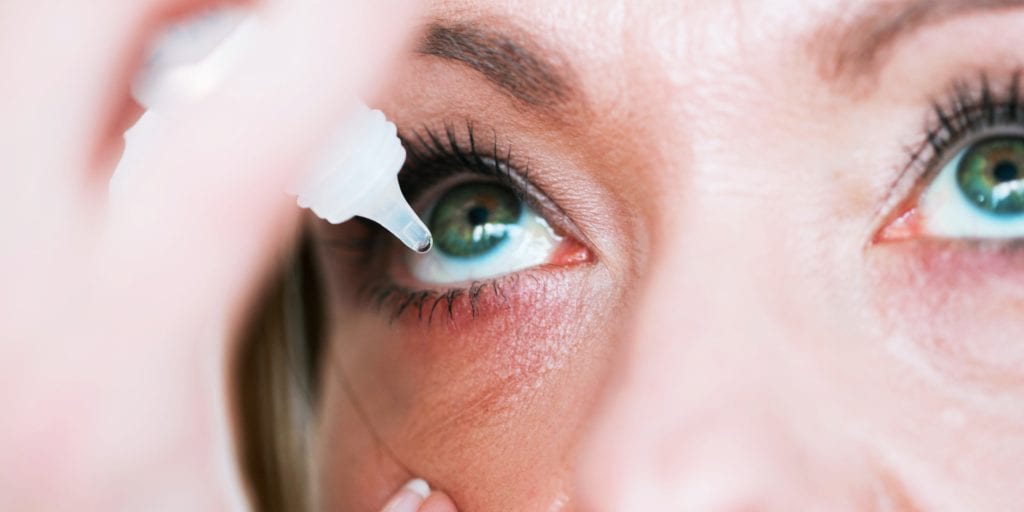 Your eyes are one of the most sensitive and important parts of your body. Ensuring proper treatment can be critical to your well-being. The downside to treating ocular herpes is there really is no permanent cure.
Your eyes are one of the most sensitive and important parts of your body. Ensuring proper treatment can be critical to your well-being. The downside to treating ocular herpes is there really is no permanent cure.
However, there are a variety of medications that can work to reduce pain and symptoms. Prior to beginning treatment each case should be evaluated on an individual basis. Selecting the wrong treatment option can aggravate the outbreak.
3 Treatment Options for Ocular Herpes
#1 Antiviral ointment, eye drops, or pills
Ocular or eye herpes can exist only at the surface level. In superficial cases you can usually treat ocular or eye herpes using antiviral ointments or eye drops. In addition, oral antiviral pills may offer a potential treatment option and be easier to use.
#2 Steroid drops
 Cases where ocular or eye herpes is affecting deeper corneal layers of the eye may require a combination of steroid drops and antiviral drops for treatment. Steroid drops can be a strong yet effective treatment that can prevent corneal scarring.
Cases where ocular or eye herpes is affecting deeper corneal layers of the eye may require a combination of steroid drops and antiviral drops for treatment. Steroid drops can be a strong yet effective treatment that can prevent corneal scarring.
This might sound like a promising option but there are some downsides to steroid drops. Using steroid drops can weaken the immune system of the eyes. This means that steroid drops can be related to recurrent ocular or eye herpes infections in some cases. Consulting your doctor before using steroid eye drops is recommended especially if you have a history of recurrent infections. Steroids can actually make ocular herpetic lesions worse, in some cases.
#3 Zirgan antiviral treatment
Using Zirgan eye drops five times a day during ocular herpes infections can be an effective treatment. It’s recommended to use these drops until the related corneal ulcer heals. These drops are approved by the FDA and are a topical antiviral treatment method. You should avoid wearing contact lenses while using Zirgan.
Related: Popped Blood Vessel in Eye
What Are Natural Treatment Options For Ocular Herpes?
Recurrent ocular or eye herpes cases can be a sign that you are dealing with a compromised immune system. Using harsh treatment methods can weaken the immune system making natural treatment methods an option you should consider. Keep in mind, your doctor may also place you on oral antivirals indefinitely (especially if you get recurrent infections).
3 Natural Treatment Options for Ocular Herpes
#1 Echinacea
Echinacea is a natural treatment that offers similar benefits to honey. Both are powerful antiviral agents that can destroy the virus in the eye while providing wound-healing elements.
#2 Ice therapy
Are you experiencing severe pain caused by ocular herpes? If so, you can discover relief by using ice therapy treatment. Ice treatment can help reduce irritation and inflammation. Ice works as a strong natural analgesic, which explains why it can help treat ocular or eye herpes.
#3 Lysine
Lysine can be defined as amino acids that can effectively reduce healing time. It can help reduce severe symptoms quickly while reducing potential breakouts in the future.

Will Ocular or Eye Herpes Go Away Without Treatment?
Due to the fact that ocular or eye herpes is a recurrent condition it’s important to treat it. It might seem like treatment is not effective because you can still get breakouts but ignoring it can make things worse. Neglecting to treat ocular or eye herpes can significantly increase the risk of breakouts and can lead to vision loss.
How Long Can It Take For Ocular Herpes To Go Away?
After diagnosing ocular herpes and beginning treatment, the amount of time before it heals or reoccurs can vary. Treatment can take anywhere from a few weeks to several years.
What Types Of Herpes Simplex Virus Exist?
Type 1 and Type 2 are the two main types of herpes simplex virus. As we mentioned above, ocular herpes is a type 1 virus.
- Type 1 Herpes Simplex Virus. Type 1 herpes virus typically affects the face and can be related to symptoms such as cold sores or fever blisters. Eye infections are most commonly caused by type 1.
- Type 2 Herpes Simplex Virus. The sexually transmitted form of the herpes virus is known as type 2. Usually type 2 results in symptoms on the genitals but it can also affect the eyes.
What Are The Different Forms Of Eye Herpes?
Eye herpes can come in several forms and can even result in blindness. Four forms of eye herpes include:
#1 Herpes Keratitis is the most common form of eye herpes.
Herpes keratitis is a type of eye herpes that can cause a viral corneal infection. In most cases of ocular herpes, only the top layer of the cornea is affected. It can usually heal without leaving scars behind.
#2 Stromal Keratitis is a little more serious than herpes keratitis.
Infections that have spread into deeper layers of the cornea can result in stromal keratitis. Cases involving recurrent eye infections are at a higher risk for developing stromal keratitis. A late response of the immune system to the original infection can cause stromal keratitis. Patients diagnosed with stromal keratitis can be at risk for scarring and occasionally blindness.
#3 Iridocyclitis is more serious than herpes keratitis and stromal keratitis.
The iris and surrounding inner eye tissue can become inflamed if you have iridocyclitis. This can result in extreme sensitivity to light, pain, blurred vision, and red eyes. Iridocyclitis is a form of eye inflammation, or uveitis, that affects the inside of the eye especially in the frontal portions.
#4 Herpes Retinitis is similar to iridocyclitis.
If an infection related to iridocyclitis occurs in the retina or the inner lining at the back of the eye, it is known as herpes retinitis.
Related: Corneal Crosslinking
Is Eye Herpes Contagious?
Eye and ocular herpes, as well as the herpes virus in general, is very contagious. Coming in contact with an infected person can contaminate you with the virus. Interestingly enough, the virus can lie dormant and never surface. There’s also a chance that you came in contact with an infected person but do not catch the virus.
How Can I Prevent Ocular Herpes Breakouts?
 Taking preventative measures can be beneficial to those who have eye or ocular herpes. This virus is known to be recurrent and can lead to further infections. It can also be attributed to a weakened immune system.
Taking preventative measures can be beneficial to those who have eye or ocular herpes. This virus is known to be recurrent and can lead to further infections. It can also be attributed to a weakened immune system.
Some doctors recommend taking antiviral medications regularly. This can help reduce the risk of getting eye or ocular herpes again. There can be triggers associated with eye irritation. A dominant virus can start reproducing with certain triggers.
Some examples of triggers include:
- Stress
- Sunburns
- Severe injury
- Fever
- Trauma
- Major surgery
If you are undergoing surgery soon and have ocular herpes you may want to consult with your doctor. Taking an antiviral medication prior to surgery can reduce the risk of an outbreak. There can be stress associated with surgery. As we mentioned above, stress can be a trigger for an outbreak.
Can Ocular Herpes Cause Blindness?
 Ocular or eye herpes is known as one of the leading causes of blindness in the world. Do we have your attention now? Any infection, virus, or irritation of they eyes can and should be very concerning. Herpes, no matter where it’s located, is usually a scary enough term for most of us. It can seem even scarier to know that many of us have herpes and are unaware of it. Herpes is pretty common and can be a very serious condition especially when it affects your eyes.
Ocular or eye herpes is known as one of the leading causes of blindness in the world. Do we have your attention now? Any infection, virus, or irritation of they eyes can and should be very concerning. Herpes, no matter where it’s located, is usually a scary enough term for most of us. It can seem even scarier to know that many of us have herpes and are unaware of it. Herpes is pretty common and can be a very serious condition especially when it affects your eyes.
When you have ocular herpes it means you have a virus that’s affecting the cornea of the eye and this causes ulcers to form across the eye. Visualize the branches of a tree to understand what we mean by ulcers across the eye.
The cornea’s primary purpose is to let in as much light as possible. It’s located at the front of the eye and is a transparent layer of tissue. Now that you better understand the cornea it can make more sense as to why an infected cornea can cause blurred vision that is permanent or blindness. The lack of a cure for ocular herpes is likely a contributing factor to the amount of people going blind from the virus.
Can A Vaccine Prevent Ocular Herpes?
 A preventative vaccine for ocular or eye herpes would be helpful but at this time there are no vaccines available for prevention. There are effective treatment methods for infected persons. Damages caused by ocular herpes can be as severe as blindness but, in most cases, it can heal without damaging the eye. Due to the recurrent trait of ocular or eye herpes you can become resistant to antiviral drug treatments.
A preventative vaccine for ocular or eye herpes would be helpful but at this time there are no vaccines available for prevention. There are effective treatment methods for infected persons. Damages caused by ocular herpes can be as severe as blindness but, in most cases, it can heal without damaging the eye. Due to the recurrent trait of ocular or eye herpes you can become resistant to antiviral drug treatments.
Can Children Get Ocular Herpes?
All age groups, including newborns, may be infected with ocular or eye herpes.
Ocular herpes can be life threatening to infected newborns. The central nervous system and other organs can be affected in newborns with ocular herpes.
A number of people have the herpes virus, but it can lie dormant and so they are unaware. They might think they have a cold sore and come in close contact or kiss your child - or anyone. By doing this they can spread the virus. It can infect the child or adult and settle in the nerves of the face. The virus may never show up or it may show up shortly after contact or during childhood.
Can Ocular Herpes Be Cured?
While you can treat the symptoms of ocular or eye herpes there is no permanent cure. Even if a breakout clears up the virus remains in your nervous system. It may or may not flair up again. There are some long-term antiviral treatments that can help prevent breakouts for patients prone to frequent breakouts.
Is Ocular Herpes a Sexually Transmitted Disease (STD)?
No, ocular or eye herpes is not an STD. STDs are associated with a different strain of herpes. Ocular herpes can be related to the cold sore herpes that causes blistering or scabbing near the mouth or nose. Occasionally, this form of virus can spread into the eye and turn into ocular herpes.

How Can You Prevent Spreading Ocular or Eye Herpes?
Awareness is the first step to prevent spreading the herpes virus. Many people have the herpes virus but are unaware of it. If you or anyone you come in contact with has a cold sore or herpes related symptoms you should avoid direct contact. Being aware of viruses and bacteria in general is also important on a daily basis.
Regularly washing your hands, eating healthy, exercising, sleeping well, and so on are all good practices for ensuring your well-being. In addition, maintaining a strong immune system can help protect you from viruses such as herpes.
How Can You Boost Your Immune System?
 Your immune system is responsible for protecting you from disease-causing microorganisms. But just like us humans, it can get tired and even fail to do its job at times. If it’s not properly cared for it is at a higher risk of being weak or failing.
Your immune system is responsible for protecting you from disease-causing microorganisms. But just like us humans, it can get tired and even fail to do its job at times. If it’s not properly cared for it is at a higher risk of being weak or failing.
Making consistent lifestyle changes can boost your immune system. It can also protect you and help you to heal faster from viruses such as herpes. Herpes viruses that continue to worsen or reoccur can be associated with a weakened immune system or delayed immune response. This means that it can be extra important to do what you can to help boost your immune system.
Here are 5 tips that can help boost your immune system:
#1 Practice a healthy lifestyle
Maintaining a healthy lifestyle is a natural way to boost your immune system and overall well-being. Practicing a healthy lifestyle can benefit just about every part of your body including your mind. Some core habits to living a healthy lifestyle include:
- Diet (eat lots of fruit and vegetables)
- Regular exercise
- Drink alcohol in moderation or don’t drink at all
- Avoid smoking or vaping
- Develop regular and adequate sleep habits
- Wash hands often
- Ensure meats are organic
- Breathe and reduce stress when possible
#2 Keep up with your aging immune system
Naturally as we age the immune system response can be reduced. This makes us more prone to infectious diseases and viruses as we get older. It can also mean that our immune system cannot fight against diseases and viruses like it used to.
Ensuring proper nutrition is a very important part of boosting the immune system as we age. In addition, be aware that your immune system can weaken over time and take extra precautions to avoid germs and bacteria. You should consult a nutritionist for a personalized dietary plan to help boost your immune system.
#3 You get what you give
Pay close attention to the foods you put in your body and invest the extra time to read nutritional labels. The food you fuel your body with will reflect the strength you receive in return. Ensuring a balanced diet that is suitable for your body helps boost the immune system.
#4 Ensure well-being of your mind and body
In the advanced world we live in new products and medications are constantly being created. Many of them promise to boost your immune system or magically make you healthier. But is it true? Do you really need to take ten huge pills per day to be healthier?
While some vitamins or supplements may offer beneficial health benefits many of them do not. You should consult with your doctor prior to taking supplements. Don’t underestimate the power of your natural body and mind. Reducing stress can play a huge role in maintaining a healthy body and mind connection. Taking time each day to relax, reflect, breath, stretch or exercise can help boost your immune system naturally.
#5 Exercise your body and mind
Committing to regular exercise can provide benefits such as boosting the immune system. Regular exercise can be a great way to alleviate stress, disconnect, and focus on you. Overall regular exercise can contribute to better health. Typically, the healthier you are the stronger your immune system is. Additional benefits of regular exercise include:
- Improve cardiovascular health
- Lower blood pressure
- Maintain a healthy body weight
- Protects against many diseases
- Helps circulation
Conclusion
The herpes simplex virus is very common but ocular herpes tends to be less common. It can enter the body when you come in contact with someone that’s infected by the virus. Typically, it sheds through saliva or nasal secretions and can affect those that come in contact with it.
If you notice a cold sore on yourself or someone else this can be a good indicator that herpes is nearby. When cold sores are present the virus can spread. As we discussed there are two types of herpes. The type of herpes that causes ocular herpes can also cause cold sores and chickenpox. Overall, ocular or eye herpes can be frustrating and recurrent. Your body may begin to reject treatment if breakouts occur often. This increases the importance of maintaining a healthy lifestyle and keeping your immune system strong.



